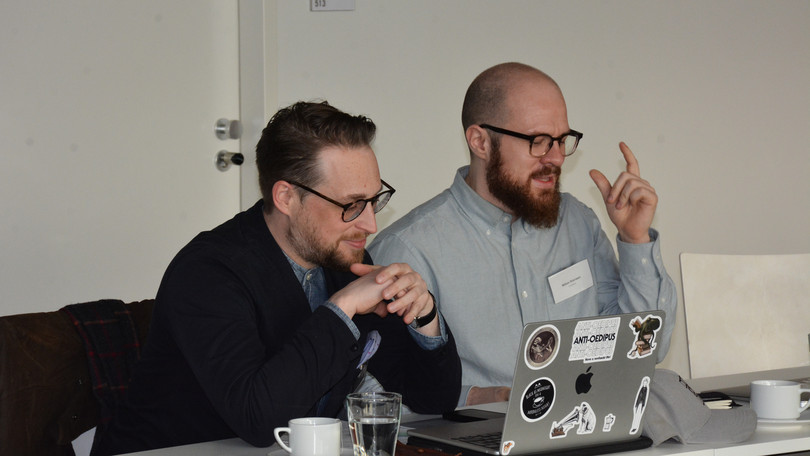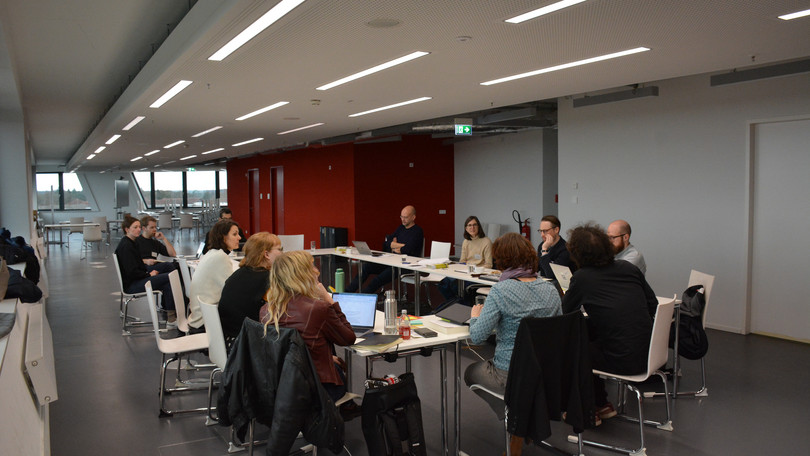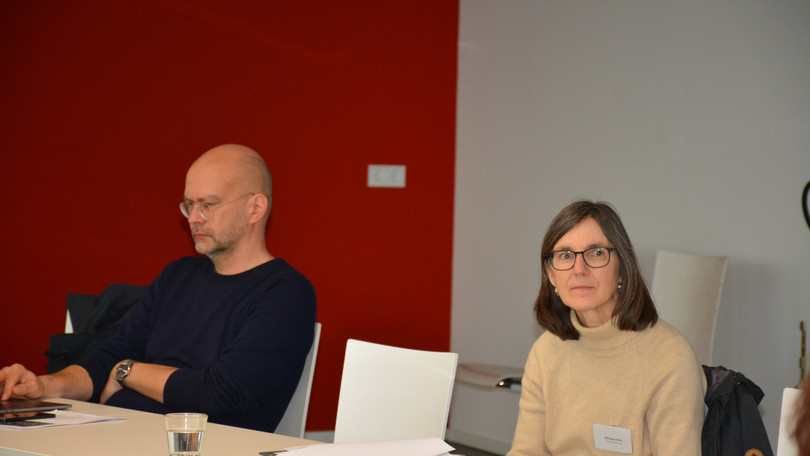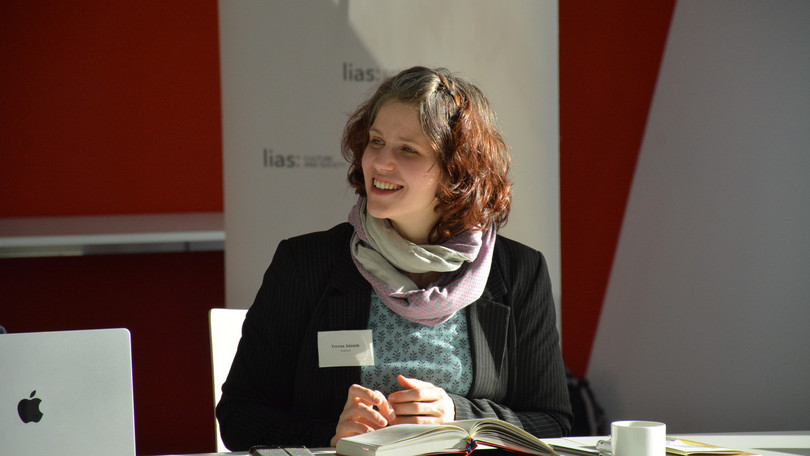Totalising Temporalities: Time and History in Nationalist Movements
Workshop by LIAS Fellows Verena Adamik and Adriá Alcoverro
2024-03-16 LIAS Fellow Verena Adamik und Adriá Alcoverro welcomed guests and listeners to their workshop "Totalising Temporalities: Time and History in Nationalist Movements", in which they looked into questions regarding temporalities in historic and contemporary nationalist movements.
The workshop "Totalising Temporalities: Time and History in Nationalist Movements" looked back at different crisis of time: in the first third of the 20th century, as well as in contemporary capitalism after the 2008 financial crisis. Methodologically, it turned the typical division of panels for academic conferences on its head with its interdisciplinary way of thinking. "Instead of reducing the time for productive discussions to a minimum," says Verena Adamik, who organised the workshop together with Adrià Alcoverro, "we held an intensive debate in an extended round-table workshop."
The workshop started with the question of the extent to which comparisons of the differences and parallels between historical nationalist movements (not only regarding European fascism of the mid-century, but here, as an example, the Black Nationalists of the USA at the beginning of the twentieth century) and the current rise of the extreme right influence research and can provide productive insights. Temporality proved to be of central importance here: different movements break with the linear notion of progress and the resulting utopian telos of modernity for different reasons. For Black Nationalists, modern times are associated with brutal racist oppression; in the current crisis of liberal democracies, the extreme right, within the framework of post-Fordist capitalism, festers comfortably in a vacuum of history and the future.
This topic can be approached from the perspective of a range of disciplines analysing different time periods. "We created a common ground for discussion between American literary scholars, historians, political scientists, media scholars and sociologists to overcome disciplinary divisions," explains Adamik, "They tend to suppress academic debates in the name of sacralising epistemological traditions." The participants agreed that only an active endeavour and striving to critically grasp and theorise complex social phenomena in the past and present will help to overcome this boundary between disciplines.
The discussion on temporality generated insights and a common agenda for restructuring research: for example, rethinking Benedict Anderson in times of resurgence of traditionalism and nation, and connecting critiques of nationalism and market nihilism through the lens of examining temporalities. The organisers are working on continuing the intellectual exchange in the form of a joint interdisciplinary publication.




